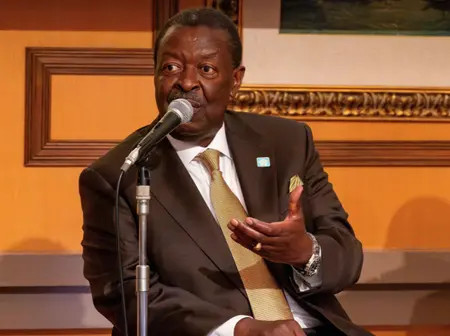Prime Cabinet Secretary Musalia Mudavadi has praised Kenya’s refugee integration strategy—the Shirika Plan—as a progressive model for socio-economic inclusion.
Speaking during a high-level side event at the Tokyo International Conference on African Development (TICAD), Mudavadi cited the plan’s transformative impact on both refugees and host communities.
He said the Shirika Plan embodies Kenya’s shift from a humanitarian aid-based approach to a development-centred framework that promotes self-reliance, resilience, and dignity for forcibly displaced persons.
“We have integrated refugees with host communities, empowering them to be self-reliant and resilient,” said Mudavadi.
“Shirika Plan has transformed refugee camps into integrated settlements, enabling refugees to access economic opportunities and social services, including education and healthcare, just like Kenyans.”
The Plan, launched in March 2025, aims to replace the parallel systems traditionally used to manage refugee affairs with unified, inclusive service delivery mechanisms.
It aligns with Kenya’s national development goals under Vision 2030 and the Bottom-Up Economic Transformation Agenda (BETA).
According to Mudavadi, more than 70,000 refugees have been enrolled in the Social Health Insurance Fund, giving them access to public healthcare services and 100 refugee schools registered under the Kenya National Education Management Information System, integrating thousands of learners into the national education framework.
Mudavadi noted that at least 8,000 refugee learners have received Elimu Scholarships through the Kenya Equity in Learning Program, which has also deployed government teachers to refugee schools.
He added that 145 refugees have had their skills formally recognised by the Kenya National Qualifications Authority through Recognition of Prior Learning (RPL)—improving their chances of employment.
“These achievements are not just statistics—they represent a paradigm shift in how we view and engage with refugee populations,” Mudavadi stated.
Mudavadi further highlighted Kenya’s progress in ensuring refugees are issued with identification documents, allowing them to access government services such as healthcare, education, and financial inclusion initiatives.
“Proper documentation is the foundation of inclusion,” he said. “It allows refugees to participate fully in social and economic life, and contributes to the stability of host communities.”

Leave a Reply